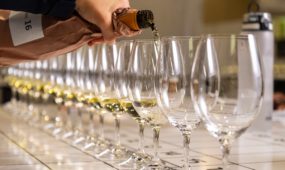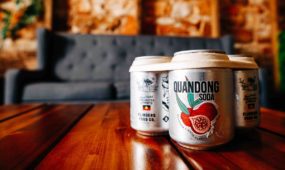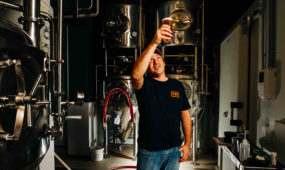Chinese stores drive Australian wine company’s growth
Food & Wine
Selling its products through a large chain of its own shops in China and offering exclusive tourism experiences at its Barossa Valley base is paying dividends for an Australian wine company.

Sign up to receive notifications about new stories in this category.
Thank you for subscribing to story notifications.
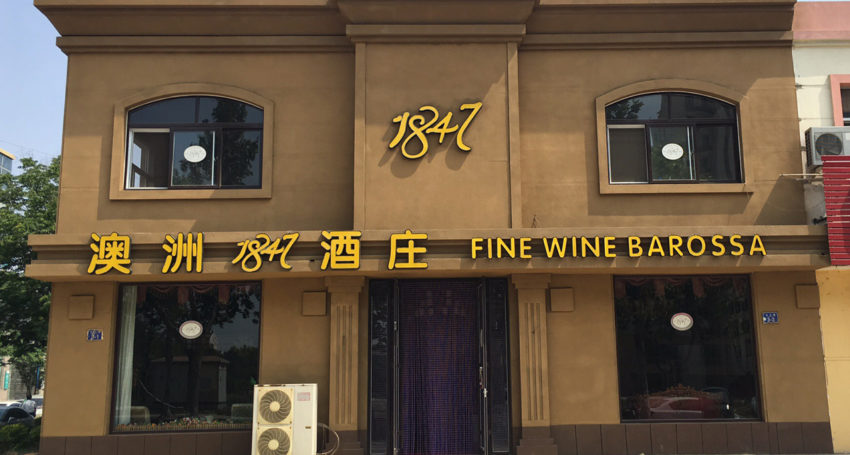
1847 Wines is expanding rapidly and achieved sales of almost two million bottles in China last year. The South Australian company has 130 branded stores in China and supplies its products to a further 200 outlets. The company is also strengthening its brand by offering wine experiences for high-value Chinese tourists to the Barossa Valley, Australia’s most famous wine region.
Owned by successful Chinese-born Sydney businessman Arthur Wang, 1847 Wines expanded from a boutique winery in Rowland Flat in 2014 when the company bought the nearby Chateau Yaldara winery, estate, vineyards and brand.
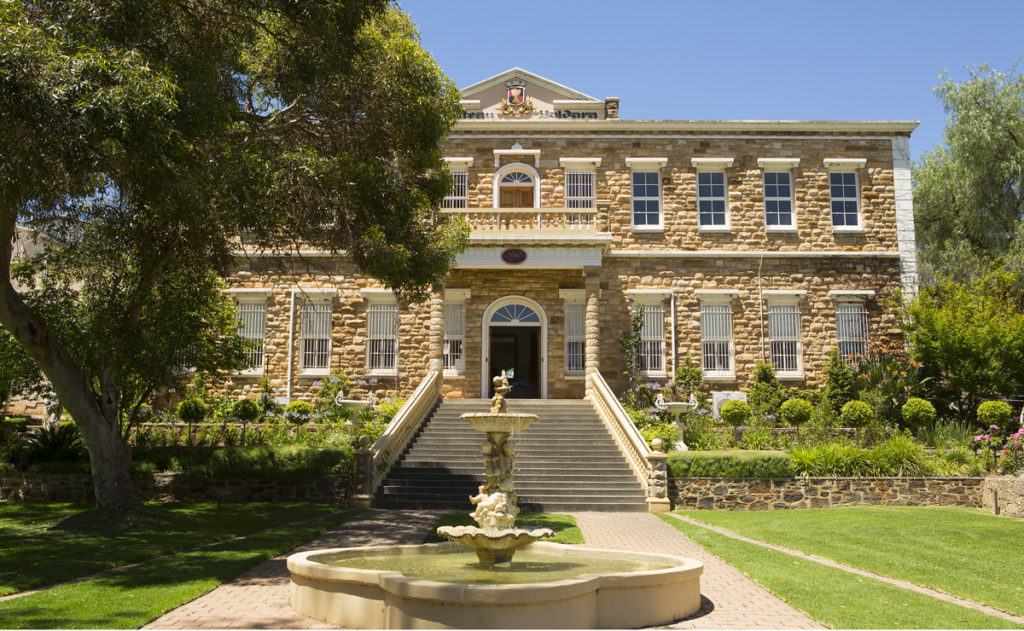
Chateau Yaldara in the Barossa Valley. Picture Dragan Radocaj.
The acquisition, on the outskirts of the southern Barossa town of Lyndoch, allowed the company to rapidly expand its production and retail presence in China. The historic chateau also introduced a tourism element, which last year brought 700 Chinese VIPs to South Australia and is on track to more than double that number to 1500 this year.
There is also a food arm of the 1847 business that exports iconic South Australian food products, such as honey, chocolate and beer, to be sold through the store network in China.
“We’ve basically got the full loop so people are engaging with the brand and experiencing the wine in China and then they come down with the tourism arm to experience the chateau and the winery, the vineyards, the open spaces and the South Australian food and wine,” said 1847 Wines General Manager Anthony Grundel.
“They then go back to China where they can still buy the wine and the food and tell their friends about the great time they had and then they will come down too.
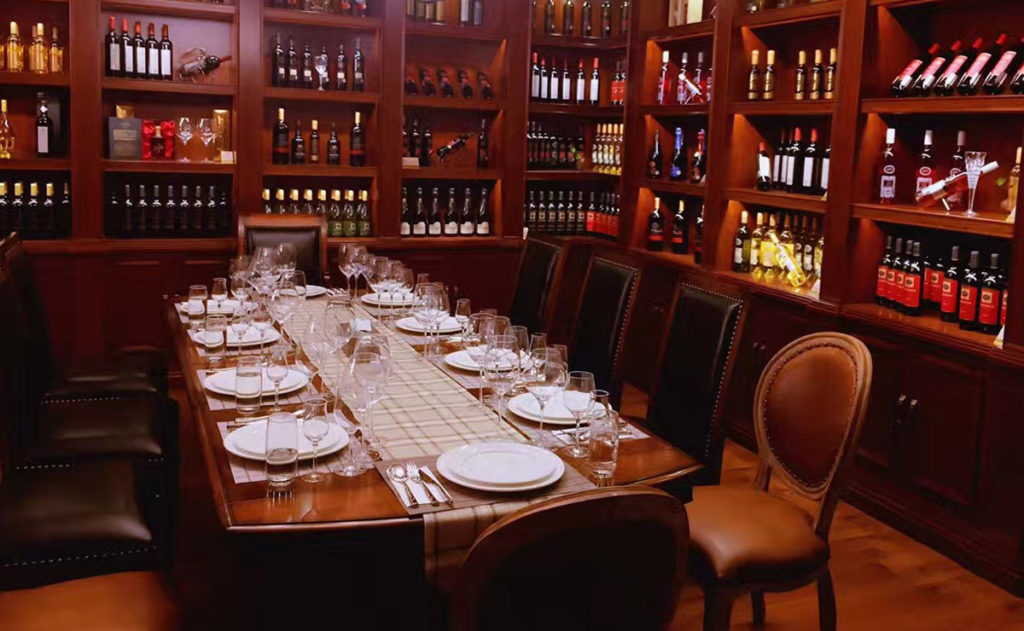
A tasting room set up for dinner at one of the 1847 outlets in China.
“We’ve got that direct to market train from dirt to bottle to market and particularly in China that gives them full confidence in the product and the fact that they can come and experience the winery, the vineyards, get their photos at the chateau and taste the wine.”
South Australia is consistently responsible for about 50 per cent of Australia’s annual production and 75 per cent of its premium wine.

The Barossa Valley is Australia’s premier wine region and is home to world-renowned brands such as Penfolds, Jacob’s Creek and Wolf Blass.
1847 Wines takes its name from the planting date of one of the Barossa Valley’s early vineyards by Bavarian immigrant Johann Gramp. The Chateau Yaldara premises, which features a manor house, restaurant, vast cellars and a 10,000 tonne winery, was built a century later in 1947 by another German immigrant, Hermann Thumm.
Chateau Yaldara was sold by the Thumm family to Simeon Wines in the 1990s, which later merged with McGuigan Wines in 2002 and became Australian Vintage Limited in 2008.
During this time the winery was used as the company’s Barossa hub and mainly produced premium red wines for its Nepenthe, McGuigan and Tempus Two brands while the Chateau Yaldara label was scaled back to European exports and fortifieds.
The Chinese headquarters of 1847 Wines is in Qingdao, in the northeastern province of Shandong, providing easy access to the huge markets of Shanghai and Beijing. South Australia is a sister state with Shandong Province, where Mr Wang is highly respected.
“The Chinese relationship is all about family and friendship and trust,” Grundel said.
“Arthur carries a very high level of trust from his friends in China and that’s why the business is as successful as it is because he’s providing a quality product that his friends and network can rely on.
“We are still a relatively small business compared to some of the big ones like Treasury but we are punching out a decent amount of volume.”
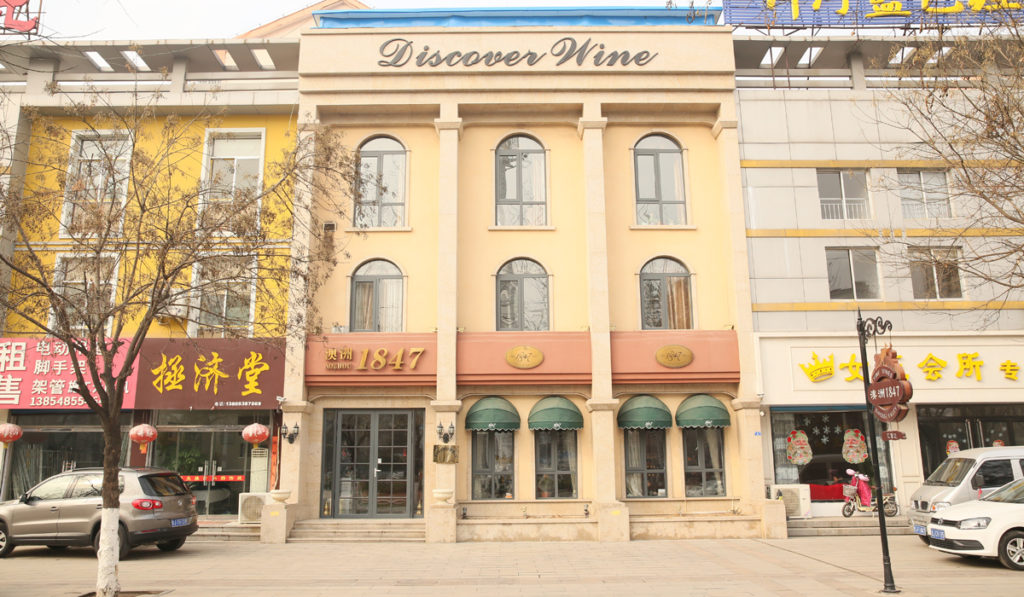
The company’s target is to have 200 stores in China by the end of 2019. It is also relaunching its Chateau Yaldara brand in Australia, the United Kingdom and North America, which it hopes to eventually account for about 20 per cent of its business.
The Chinese stores range in size from icon stores that are the equivalent of a cellar door in the Barossa, traditional bricks and mortar retail stores that only sell 1847 product and smaller showcase stores, which are dedicated spaces within a larger store.
The 1847 offering is dominated by red wine Shiraz and Cabernet Sauvignon at a range of price points including a super premium line at AU$400 (RMB¥2000).
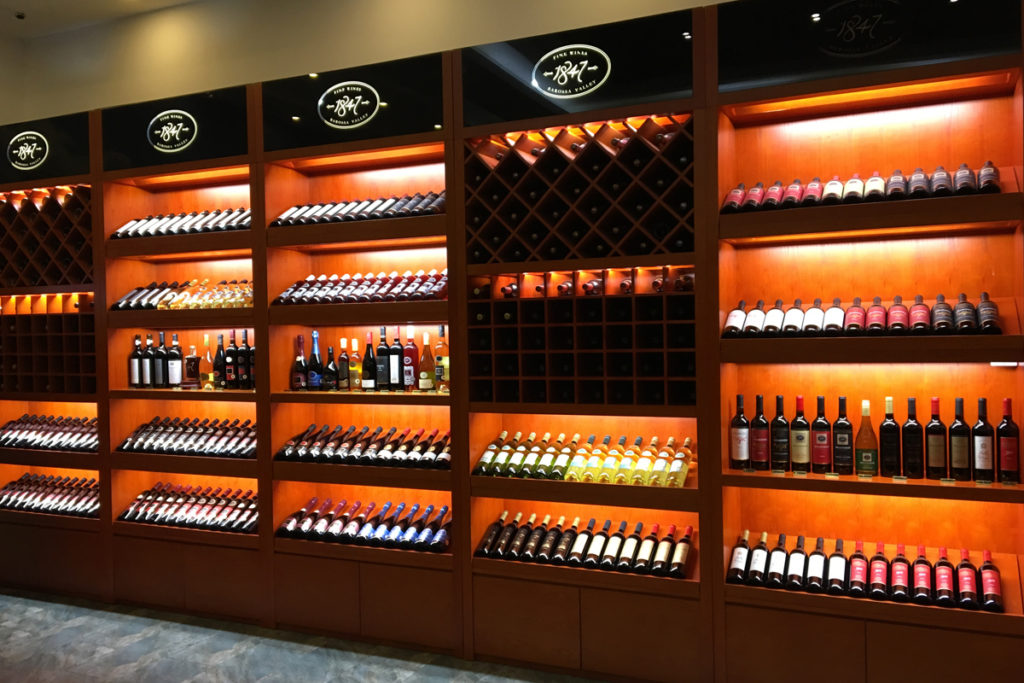
“The Chinese stores also have options for people to buy franchises and they’ve got strict KPIs for growth,” Grundel said.
Grundel said the that although Australian Shiraz and Cabernet remains the main interest there has been a increase in demand for varieties like Sauvignon Blanc, Chardonnay, Moscato and the Grenache, Shiraz, Mataro blends.
“So while it’s still in early stages the market is showing signs of maturity and it’s starting to explore new varieties,” he said.
According to Grundel the primary focus of 1847 is selling the quality of the Barossa, including in the four or five sub brands in the 1847 family.
“Everything we do is sent over in the bottle and is Barossa or South Australian focused,” Grundel said.
The company crushes about 4500 tonnes of grapes a year from its 80 hectares of vineyards and fruit sourced from about 10 South Australian vignerons. It plans to increase its crush to about 6000 tonnes a year as the business grows.
“The ultimate target for the business model is to get up to the four million bottle (a year) mark – about three and a half million to supply our 1847 stores and our brand partners in China,” Grundel said.
“The other half a million bottles are for speculators and one-off sales in China so that leaves about a million bottles for Australia and the rest of the world.”
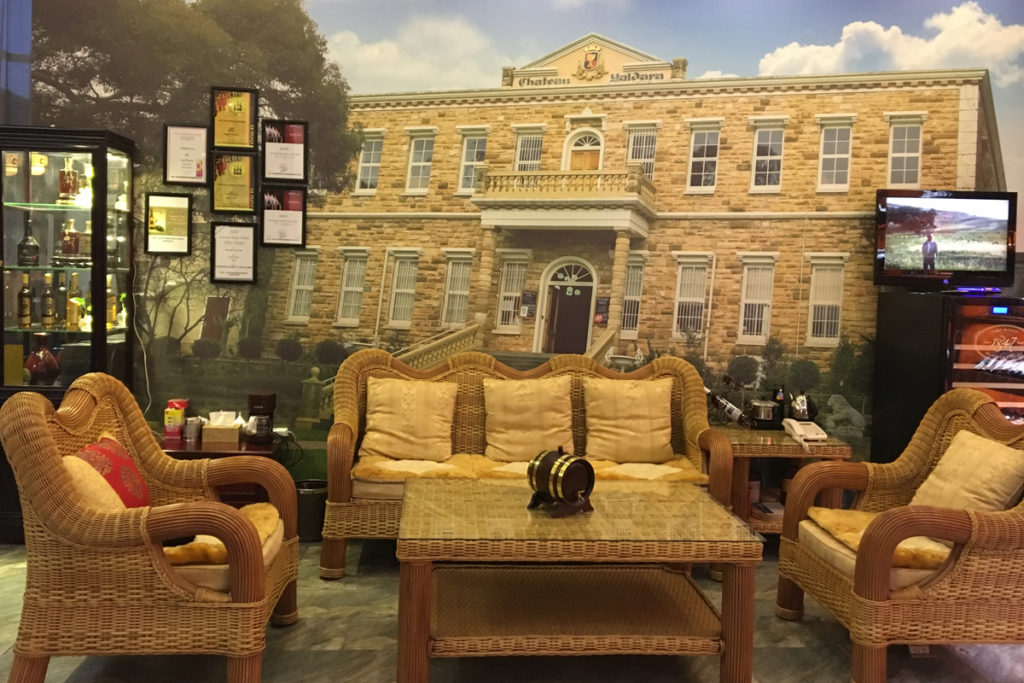
A tasting area in one of the 1847 outlets in China with an image of the Barossa chateau in the background.
1847 Wines will relaunch its Chateau Yaldara brand in Australia next month to coincide with the 70th anniversary of the Lyndoch winery. There are also plans refurbish the manor house and gardens and again become the major tourism attraction it was in the 1970s and ‘80s when it attracted up to 150,000 visitors a year.
Grundel said the Australian relaunch was also necessary to diversify the business so its success was not solely reliant on sales in China.
“We’ve got a really strong team here now and we’re on the cusp of launching ourselves back into Australia and really drawing on the memories of those who have been here in the past while also engaging with those new wine consumers who have surfaced in the last 15 years or so,” he said.
“While we’ve got a strong network in and around Shandong, the vision is to start moving the income bandwidth away from relying on China in the next couple of years and start revisiting the UK, the US and Australia.”
Jump to next article

